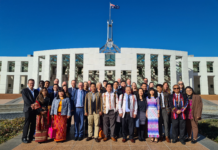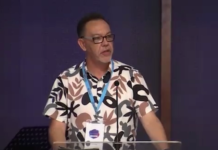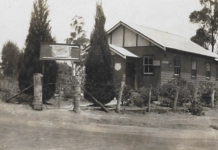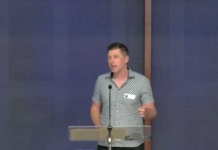 “I had travelled for 25 minutes to a venue so as to reduce her travel that day, she came in ten minutes late for our coaching appointment, no apology, and stated “I have hit the wall!” All of this was uncharacteristic of our relationship and I could see that tensions and stress were at a very high level…”
“I had travelled for 25 minutes to a venue so as to reduce her travel that day, she came in ten minutes late for our coaching appointment, no apology, and stated “I have hit the wall!” All of this was uncharacteristic of our relationship and I could see that tensions and stress were at a very high level…”
“Do I take a counselling and care based approach? Or do I stick to the coaching model? Personally, I much prefer coaching so I decided to do the latter. An hour later, she walked out with some clear steps that she herself had developed to address the situation she was facing. That afternoon she called to say that she had completed the very project that she was immobilised by earlier that morning. Coaching is a great tool to bring order out of Chaos!” (Taken from a report by one of our accredited coaches)
So what exactly is coaching?
For those unfamiliar with the term coaching, in this context, it refers to the process of coming alongside another and drawing out what the Holy Spirit is already doing in their lives. Unlike a traditional mentoring relationship where knowledge and experience is imparted from the mentor to the person they are mentoring, coaches are people who are convinced that those they coach (plus the Holy Spirit) have the needed answers to virtually all the situations they are likely to face. It is a coaches role to draw those solutions out, getting the people they coach to set realistic goals and providing the support of accountability and the power of having someone who is ‘in their corner’. A good coach doesn’t have the answers, they have empowering questions.
The coaching relationship is one that unlocks success and transformation and can be used formally, or informally, in many arenas. It is an incredibly valuable resource in releasing people, helping them to see God’s call lived out their daily lives. This makes coaching a powerful discipling tool. It gives permission to dare to dream big and then back that up with solid, achievable goals and well defined action steps. Coaches are responsible for managing the coaching process. Those being coached have the responsibility of deciding what they will do and then doing it.
International Coach Trainer
In July, earlier this year, we had the privilege of hosting Tony Stoltzfus, an internationally recognised life coach and author of our key text, “Leadership Coaching: The Disciplines, Skills and Heart of the Christian Coach”, to conduct two coaching seminars at Morling College. Over the last decade, Tony has developed thousands of coaches, co-founded an international training school and created an extensive range of leadership resources that are used around the world. He is the author of many books, and training courses built around innovative adult learning strategies.
“An Introduction to Life Coaching” was a workshop that was open to anyone who was interested in knowing a little more about coaching. About 30 people from a variety of backgrounds attended, including a staff team from a long day care centre. Through his unique teaching style combining story, demonstration and time to practice, Tony showed how coaching and the skill of asking good questions could be implemented into a variety of contexts including ministry, business and family.
The following day “Transformational Life Coaching” was presented as in-service training for those accredited coaches and anyone else that practised as a life or ministry coach who were seeking to keep their coaching fresh and relevant. Much of this training was based on the material from his book “The Calling Journey” giving coaches the skills not only in coaching others to understand God’s call but to identify their own as well.
The feedback to both of these days was very positive and “Cultivate Coaching” will be exploring further opportunities to work with Tony in the future.
“Cultivate Coaching” the Baptist Coaching Process in NSW & ACT
Coaching in the NSW and ACT Association of Baptist Churches was born out of a need for church planters to have access to coaches. It was quickly evident that coaching was not only beneficial for church planters but provided a valuable resource for anyone in church leadership. The Coaching Oversight Group, part of the Evangelism and Church Development Taskforce, administers the coaching program. This team has created a variety of different training opportunities for those who are interested in developing their skills in coaching at a number of different levels.
How can you get involved in Coaching?
2013 will see the implementation of an exciting comprehensive training program that offers more accessible opportunities for the development of coaching within the denomination. The coaching training has been restructured to provide quality training, including online components, aimed at increasing skill level and provides teaching and practical units at every stage. The program starts with a “Foundations of Coaching” seminar that then continues on to more advanced training and practice. This ensures that participants have the opportunity to acquire coaching accreditation if they so wish. As from 2013 it will be possible for a person to begin with no knowledge or experience of coaching and to progress to being a fully accredited coach within a calendar year. Discussions are underway with Morling College with the hope that this course will be a recognised Degree level course in future years.
Why not “stick your toe in the water”?
The “Foundations of Coaching and Mentoring” seminar is, as its name suggests, an introductory workshop designed to give an overview of the different kinds of mentoring styles and introduces the participants to the GROW coaching model, a simple and reproducible coaching resource. This is a great training opportunity for those who have a heart and passion for investing in the lives of others and who want to increase their skill level and connect with others who have a similar passion.
We will be running five Foundations of Coaching and Mentoring Seminars in 2013 with the first 3 being Saturday, 23rd February, Saturday, 6th April, and Saturday, 25th May. These first three events will held around the Sydney Region.




































